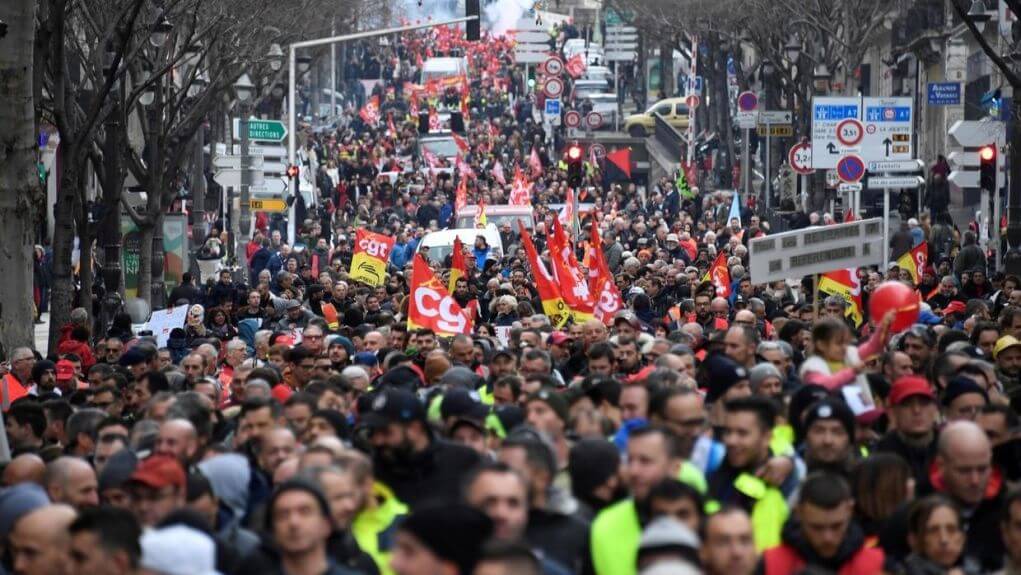Basta! The palaver about the controversial pension reform had been taking too long for the government in Paris. On Saturday, on the basis of the notorious constitutional clause 49.3, she quickly ended the parliamentary debate and declared the proposal “adopted”.
The outraged opposition MPs now only have the option of depriving the government of their confidence. The prospect of overthrowing the government is very slim, however, because even without allied votes from the bourgeois center, Emmanuel Macron’s presidential party “La Republique en Marche” (LREM) has an absolute majority in the National Assembly.
Prime Minister Edouard Philippe, in his view, only drew the consequences of a difficult situation on Saturday. The opposition, in particular the members of the left-wing party “La France insoumise” (LFI), had submitted a total of more than 40,000 “amendments” in order to deliberately lengthen the debate and, if not to prevent it from being adopted, did so to complicate as much as possible.
This resistance in Parliament also aimed to show the public the weaknesses of this reform. After ten days of fierce speeches and votes, only a tiny fraction of these objections had been discussed in the council room of the Palais Bourbon. Over the past week, the prime minister had said he would allow the debate time, despite the opposition’s “obstruction,” before resorting to Article 49.3 as a last resort.
Philippe surprised the opponents of his reform on Saturday. This political muzzle for the opposition, as provided for in the constitution of the Fifth Republic, has always been considered an undemocratic “hammering method”. Usually, this is a tool of a government without a solid majority and therefore a sign of weakness.
Expression of an authoritarian style of government
The fact that the prime minister is already using this last resort is more an expression of an authoritarian style of government or an admission that the submission of an in-depth examination may not stand up to it. For Philippe and many MEPs who are relieved to see a troubled end to the end, this debate, which is normal for any parliamentary democracy, was apparently a waste of time.
The reactions of the opposition, which speak almost unanimously of a “scandal”, are correspondingly violent. The left-wing groups have already announced a joint motion of no confidence against the government, and the conservative MPs from “Les Republicains” want to vote for a vote of confidence.
However, since the reform of the pension system consists of two templates, Philippe’s approach only affects the more important of the two legal texts, which deals with pension reform as such. LFI Chairman Jean-Luc Melenchon, who speaks of “totalitarian” tendencies in governance, has promised that the debate will, therefore, continue with new proposals for the second submission.
The unions, who have been campaigning against the reform for months with strikes and demonstrations, are also extremely upset by the executive’s actions. They are already calling for new rallies and protests. However, as part of the preventive measures against the coronavirus, the authorities could simply prohibit them like other major events.
No one missed the fact that the Prime Minister announced the end of the parliamentary debate following a government crisis meeting on the Covid-19 pathogen. That shocked his opponents even more. The prime minister hurried to insure on the first television channel TF1 that evening that there was “no connection” between the grip on 49.3 and the Covid-19.














